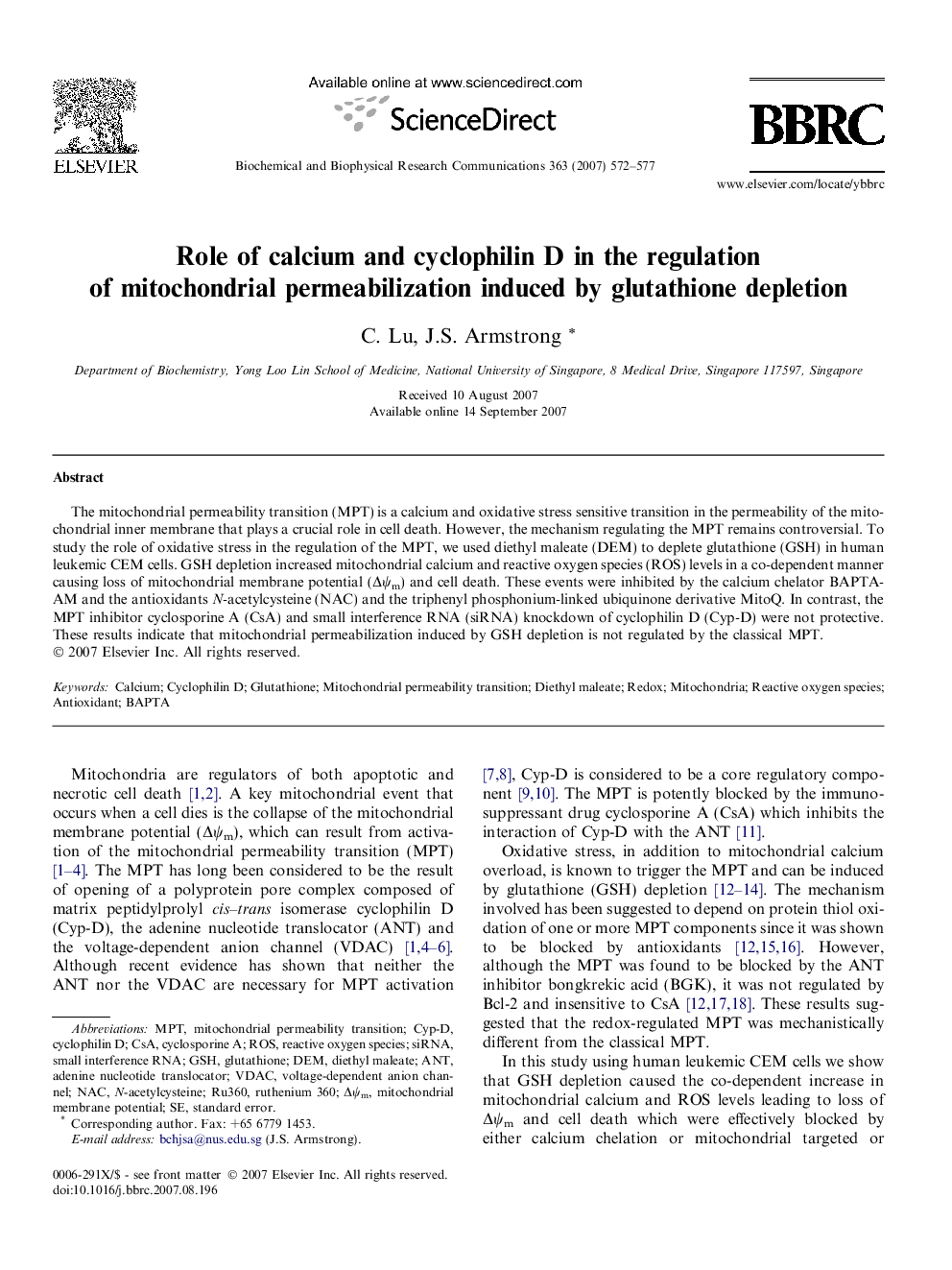| Article ID | Journal | Published Year | Pages | File Type |
|---|---|---|---|---|
| 1936954 | Biochemical and Biophysical Research Communications | 2007 | 6 Pages |
The mitochondrial permeability transition (MPT) is a calcium and oxidative stress sensitive transition in the permeability of the mitochondrial inner membrane that plays a crucial role in cell death. However, the mechanism regulating the MPT remains controversial. To study the role of oxidative stress in the regulation of the MPT, we used diethyl maleate (DEM) to deplete glutathione (GSH) in human leukemic CEM cells. GSH depletion increased mitochondrial calcium and reactive oxygen species (ROS) levels in a co-dependent manner causing loss of mitochondrial membrane potential (Δψm) and cell death. These events were inhibited by the calcium chelator BAPTA-AM and the antioxidants N-acetylcysteine (NAC) and the triphenyl phosphonium-linked ubiquinone derivative MitoQ. In contrast, the MPT inhibitor cyclosporine A (CsA) and small interference RNA (siRNA) knockdown of cyclophilin D (Cyp-D) were not protective. These results indicate that mitochondrial permeabilization induced by GSH depletion is not regulated by the classical MPT.
